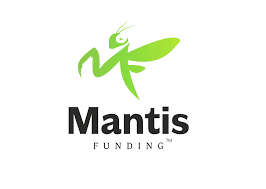Square vs. Paypal: Which POS System Is Right for Your Small Business?
Square vs. Paypal: Which POS System Is Right for Your Small Business?
When it comes to payment processing platforms for small-to-medium-sized businesses, you would be hard-pressed to find two names bigger than PayPal and Square. With much debate over which payment processing titan is better than the other, it can be challenging to figure out which one is the right choice for your business. This guide will compare the two platforms’ core features, including POS systems, eCommerce sales platforms, and other business tools for effective reporting and invoicing.
Read on to see which one is right for your small business.
Square vs Paypal: At a Glance
| Square | PayPal | |
| Pros | – Impressive feature set and free add-ons | – Trusted by consumers |
| – All-in-one multichannel payments system | – Predictable pricing | |
| – Dedicated POS systems for different business types | – Enables international selling | |
| – Proprietary POS hardware options | – Extensive integrations | |
| – Free eCommerce tools and lower transaction fees | – Good developer tools | |
| – No chargeback fees | – Accept in-person PayPal and Venmo payments | |
| Cons | – Limited support for international sellers | – Account stability issues |
| – Not for high-risk industries | – Inconsistent customer support | |
| – Occasional account stability issues | – Online processing fees higher than Square | |
| – Slightly more expensive for in-person transactions | – Added charges for virtual terminal, chargebacks, recurring billing |
Pros and Cons of Square
Pros
Square offers an impressive set of features, free add-ons, and an all-in-one multichannel payment platform. The payment processing solution provides users with dedicated POS systems for different types of business types and proprietary hardware options that are easy to set up. Square also includes free eCommerce tools, some lower transaction fees than PayPal, and no chargeback fees.
Cons
On the other hand, Square has limited support for international merchants and is not suitable for companies that operate in high-risk industries. Some users have also experienced occasional account stability issues. Processing in-person transactions through Square can also be a bit more expensive compared to PayPal Zettle.
Pros and Cons of Paypal
Pros
PayPal is a popular payment platform widely used by consumers from all over the world. It offers predictable pricing, international selling, and has extensive integrations. PayPal also has good developer tools and allows the acceptance of in-person PayPal and Venmo payments. In terms of in-person transactions, it is slightly cheaper than Square.
Cons
PayPal is not suitable for high-risk industries and reportedly offers inconsistent customer support. Online processing fees are generally higher than Square’s, particularly for businesses with small average tickets. Additionally, PayPal charges extra for a virtual terminal, chargebacks, and recurring billing.
What Are the Differences Between Square and Paypal?
Square and PayPal are prominent payment processing platforms that differ in several key aspects. Square primarily caters to brick-and-mortar businesses, offering dedicated POS systems and proprietary hardware options. In contrast, PayPal is well-suited for online merchants, providing user-friendly payment solutions and developer tools for integrating payment buttons.
While both use flat-rate pricing, the specific transaction fees and additional charges vary between Square and PayPal. Understanding these differences can help businesses choose the platform that best aligns with their needs and operations. Learn more about some of these differences below.
Plans
Square provides four plans for business owners to choose from that range from free to $72 per month, each offering a different set of features. Among the plethora of features these plans have to offer are tools such as abandoned cart management, lower processing rates per purchase, and discounted shipping options. Square’s top tier, the Premium plan, is designed for large retailers that process a high volume of transactions.
PayPal gives users two payment processing plans to pick from: Standard and Payments Pro. The Standard plan can be integrated with your online shopping cart within minutes; however, it offers limited customization options and does not include access to a virtual terminal.
On the other hand, PayPal Payments Pro provides more flexibility and includes a virtual terminal. This plan allows you to accept payments in 25 different currencies from over 200 countries, and it also enables phone payments. However, integrating PayPal Payments Pro with your website requires coding experience.
Pricing
Both payment processing platforms provide transparency in transaction costs via their flat-rate pricing models.
For Square, in-person transactions are charged at 2.6% plus 10 cents per transaction, while online transactions cost 2.9% plus 30 cents. Additionally, Square offers free card readers for new account sign-ups. The pricing for Square’s register or POS system ranges from $10 to $799. It is worth noting that Square does not charge any fees for chargebacks related to disputed transactions.
PayPal charges 2.7% plus 30 cents for in-person transactions and 2.9% plus 30 cents for every online transaction. When it comes to hardware prices, Square is a little more pricey. However, PayPal imposes additional fees where Square does not, such as a $30 monthly fee for a virtual terminal and a $20 chargeback fee.
Features
Square offers business owners convenient online payment features and flexibility for remote payments. It allows for easy creation and sending of invoices to customers, who can pay using debit cards, credit cards, or ACH. Square also enables businesses to accept payments over the phone and provides a website-building tool for creating a web storefront. Additionally, Square offers a mobile payment device and various solutions for POS registers or terminals.
PayPal provides a wide range of developer tools that allow developers to add payment buttons to any part of a website or online storefront. PayPal also includes invoicing and recurring billing features. While PayPal accounts come with free chip and swipe card readers and a chip-and-tap device for contactless payments at retail locations, they do not offer POS hardware, so you will need to find a third-party provider for that aspect.
Ease of Use
Square is incredibly user-friendly and easy to use right out of the box. Its payment processing platform is simple to load up and use, particularly if you need a straightforward website builder. With Square, you can easily drag and drop the desired features onto your site, and Square takes care of the rest.
PayPal is a user-friendly option for online businesses, offering a user interface that is not overly complicated. However, if you opt for the Payments Pro plan, you will have access to additional features.
Integrations
Both Square and PayPal have many different integrations. However, they are accessible in different ways. Using the Square App Marketplace, business owners can integrate their Square payment processing services with programs like Xero, QuickBooks, and ZipRecruiter.
PayPal, on the other hand, integrates with fewer third-party apps. However, apps like eBay, QuickBooks, and Shopify already come with PayPal integration, meaning you won’t miss out on any major features if you decide PayPal is a better option for your business.
Customer Support
Square has troubleshooting content alongside frequently asked questions (FAQs) on its website for technical support in a pinch. While Square has phone support, it isn’t available outside business hours. However, Square does offer an around-the-clock live chat option for those who need support after hours.
PayPal provides phone support, but like Square, it is limited to its business hours. PayPal also offers its users live chat support if they require support after hours. In addition to a FAQs and troubleshooting section on its website, PayPal’s community forum is a great resource users can use to seek help from other PayPal users if they encounter a specific problem.
Employee Self-service
When it comes to self-service employee management tools, Square excels with its timekeeping tools, unlimited permission sets, and more. However, these features come at an additional cost via their Square for Retail service.
PayPal, on the other hand, currently doesn’t offer employee self-service tools.

Secure Your Financing with Ease
Connect your bank account safely with Plaid. Experience seamless and secure access to Mantis Funding’s financing options. Our Apply Now application, powered by Plaid, is quick, secure, and hassle-free. Enjoy streamlined financing solutions tailored to your needs – that’s the Mantis Funding promise.
Which One Is Right for Your Business?
What Businesses Is Square Best For?
Square is particularly well-suited for brick-and-mortar businesses that require a comprehensive payment solution. Its all-in-one multichannel payments system, dedicated POS systems, and proprietary hardware options make it an excellent choice for merchants operating in physical locations.
Square’s features like invoicing, web storefront creation, and the ability to accept payments over the phone further enhance its appeal for brick-and-mortar businesses seeking a robust and user-friendly payment processing solution.
What Businesses Is PayPal Best For?
PayPal is ideal for online businesses that prioritize simplicity and ease of use. It offers a straightforward way to accept payments without the need for extensive setup or complicated features.
PayPal’s user-friendly interface, developer tools for integrating payment buttons, and invoicing capabilities make it a solid choice for online businesses of various sizes.
Additionally, PayPal’s support for multiple currencies and its wide acceptance globally make it a suitable payment solution for sellers operating in the online space.
Square vs Paypal FAQs
Which POS system is better, Paypal or Square?
PayPal and Square offer capable POS systems, but the choice depends on your business needs. Square provides dedicated POS systems tailored for different types of businesses, while PayPal relies on third-party providers for POS hardware. Consider pricing, features, and integration options to determine which POS system better suits your business.
Is Square a good credit card processing company?
Yes, Square is a reliable and reputable credit card processing company. It offers a comprehensive payment processing solution with a user-friendly interface, competitive pricing, and features suitable for various business types.
What are Square and PayPal?
Square and PayPal are payment processing companies that enable businesses to accept payments from customers. They offer online and in-person payment solutions, invoicing features, developer tools, and integration options.
Which is cheaper: Square or PayPal?
The cost comparison between Square and PayPal depends on transaction volume, business type, and specific features utilized. Both Square and PayPal have flat-rate pricing structures, but their transaction fees and additional charges may differ.
Is it better to use Square or PayPal?
The choice between Square and PayPal depends on your business requirements and preferences. Square is well-suited for brick-and-mortar businesses and offers dedicated POS systems, while PayPal is often preferred by online businesses for its simplicity and ease of use.
Which is safer: PayPal or Square?
PayPal and Square prioritize security and employ industry-standard measures to protect customer data. They utilize encryption technology and comply with payment industry security standards.
What is the monthly fee for Square?
Square offers various pricing plans with different monthly fees. The monthly cost depends on the specific plan you choose. Square’s plans range from free to $72 per month, each offering different features. The PayPal Premium plan, which caters to large stores with high transaction volumes, is the most expensive option. Review the details of each plan to determine the monthly fee that aligns with your business needs.
Square and PayPal have great options for small businesses to streamline how they handle transactions and process payments. While Square offers an easy-to-use solution out of the box for brick-and-mortar businesses, PayPal allows users to accept payments via PayPal, Venmo, and international transactions. Each provider offers features that empower small businesses to customize how they process and manage transactions.
Conclusion
At Mantis Funding, we understand that finding the right tools and resources to help fuel your business can be challenging. That’s why our revenue-based financing options make it easy to find tailored solutions to help you access the capital you need to help your business reach its full potential.
Contact us for more information on revenue-based financing that can help you grow your small business!
